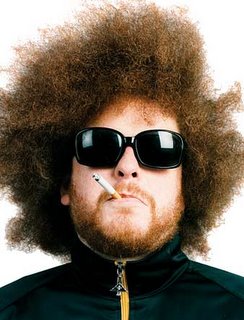As stated earlier, in his teen years Herzog had a deeply affecting flirtation with Catholicism that has echoed down throughout his life. “I have always thought of my films as really being one big work that I have been concentrating on for forty years,” he says. “The characters in this story are all desperate and solitary rebels. . . They know their rebellion is doomed to failure, but they continue without respite, wounded, struggling on their own without assistance.” Herzog maintains, and I agree, that when the history of his career is written Grizzly Man “will be a centerpiece” of his canon. But it was only after many viewings that it occurred to me (a veteran of eight years of Catholic grade school) that one of Grizzly Man’s chief virtues is that it’s a supremely decent film, acting as a kind of extended novena for the lost soul of Timothy Treadwell.
I doubt there are other directors working today that you'd use the word novena to describe their work.
My dim memory of the movie was that it treated Treadwell far more sympathetically than he deserved. His foolishness cost him not only his life but the life of his girlfriend's and brought all kinds of sorrow to their families. But this essay is more generous to Herzog than I am and might make the movie worth a second viewing.
My links to these essays, though, are intended to bring attention to a director who insists on his own vision. Not unusual, you say, most, if not all, movie directors are megalomaniacs and you might be right. But it sounds like Herzog is mining a seam that's unlike any other. While he may not be a conservative - I have no idea of what his politics are and don't really care - what he finds valuable are the things that last.




No comments:
Post a Comment